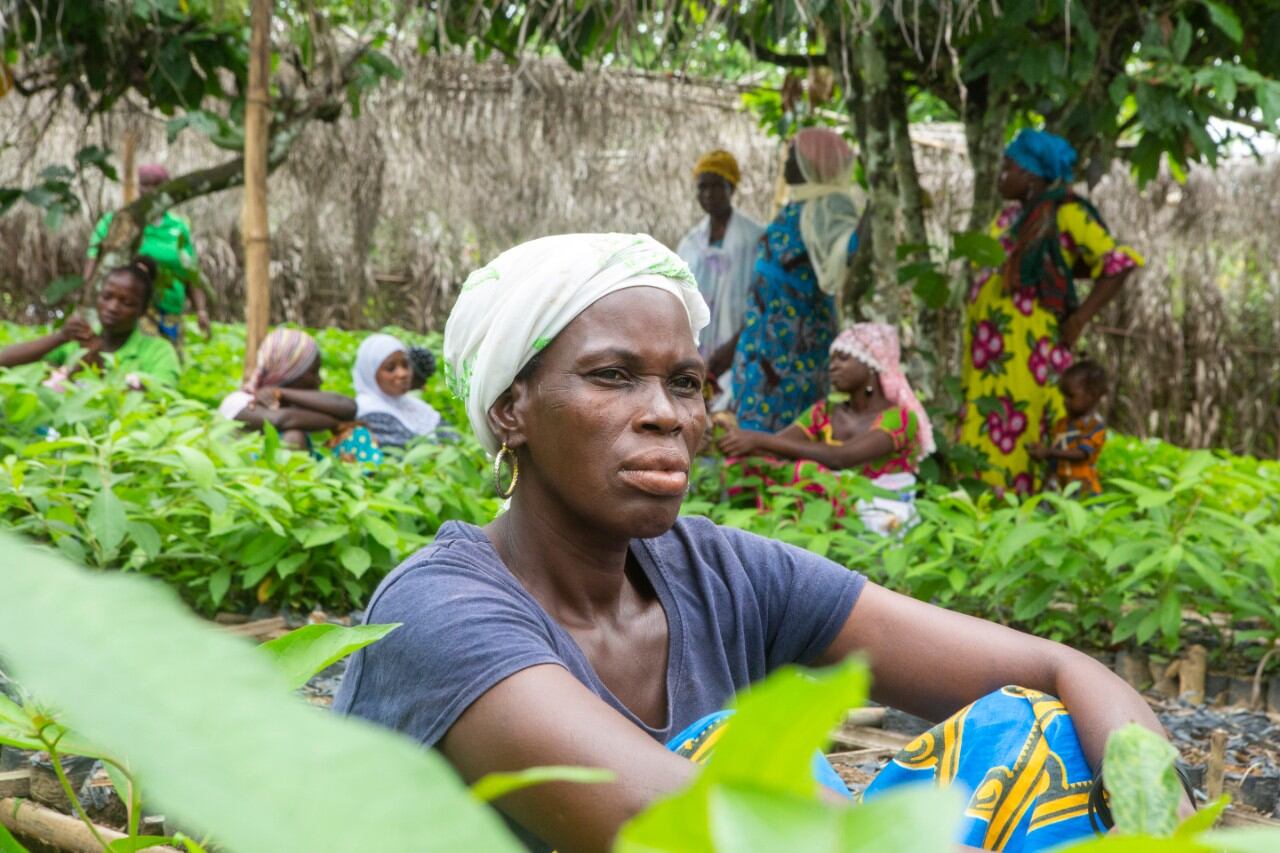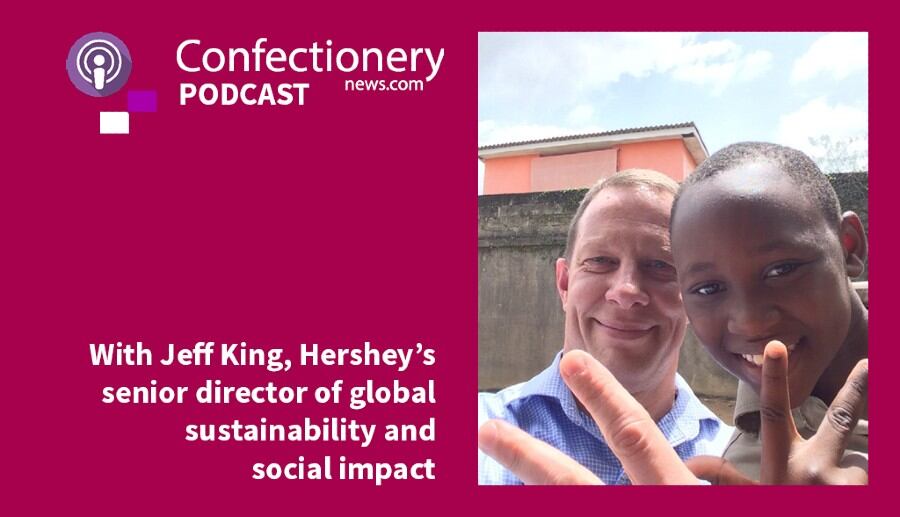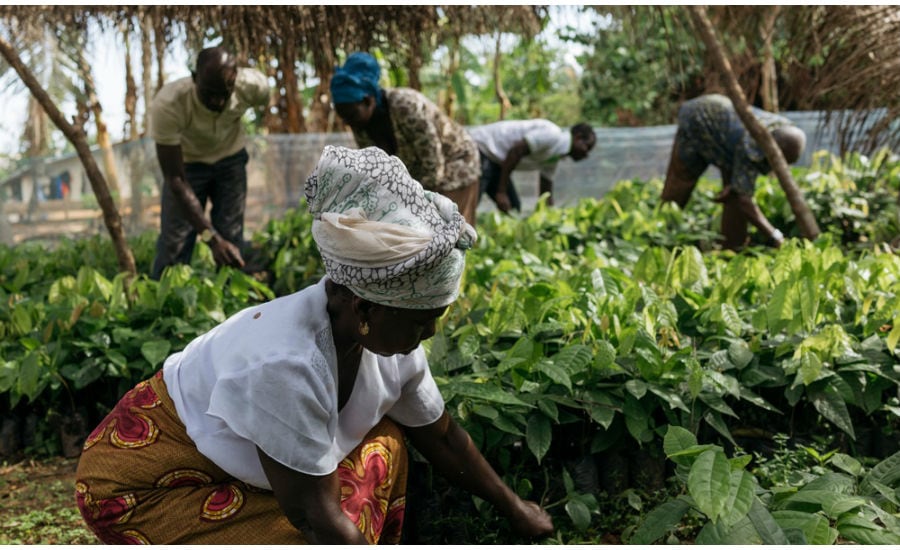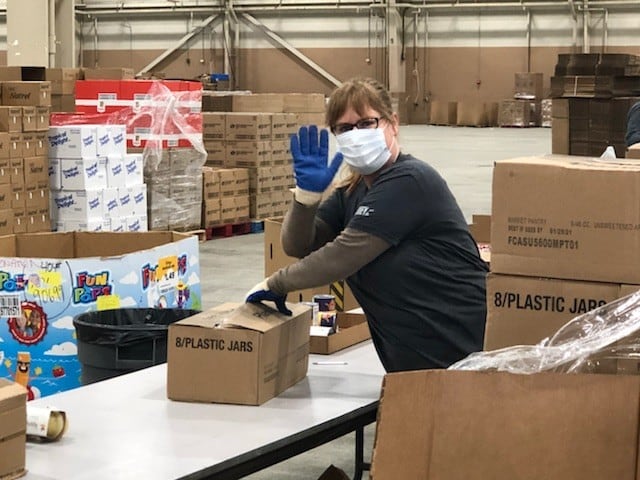
The program’s expansion was announced earlier this month and the new commitment will make cocoa from mainly Cote d’Ivoire and Ghana traceable from the farm to the first point of purchase, giving the company a clear line of sight into where and how the cocoa in its supply chain is produced – providing more transparency for consumers and stakeholders.
“We think we've made considerable progress across the four pillars of Cocoa For Good and it can be seen in our yearly sustainability report which can be found online,” said King.
In our podcast chat (listen above) King said Hershey has been focusing on building prosperous communities by diversifying family incomes and expanding economic opportunities in cocoa farming regions.
“We do this a lot primarily through farmer training and good agricultural practices making sure they have inputs and resources … we reached around 51,000 farmers in 2019.
"We also work to help train the family on how to diversify their incomes through additional crops. And we also work with women's groups to help women in the community start their own small businesses and in 2019, we helped establish over 250 Community Savings Groups,” he told ConfectioneryNews.
We think we've made considerable progress across the four pillars of Cocoa for Good and it can be seen in our yearly sustainability report which can be found online
Child labor
King reports that zero cases of forced labor had been found in Hershey’s supply chain last year, but he is aware of the report by the US Department of Labor due to be published later this month on child labor on West African cocoa farms, which reveals there has been an actual increase in the past 10 years.
He said he will wait for the final report to be published before commentating in full but said in his opinion it’s important to look at the findings in context:
“I think you have to look in absolute numbers and rates of child labor In relationship to the growth in cocoa farming and cocoa production since the last report. We saw cocoa production and the number of cocoa farms had greatly outpaced child labor. So I think when you look at it in that context, and I'm not discounting any numbers that come forward by any means, but if cocoa is growing faster than child labor is - then the rate of child labor is actually going down in relationship to the amount of cocoa being produced.”
Hershey’s Cocoa For Good program reached a milestone earlier this year when it achieved its committment to sourcing 100% certified and sustainable cocoa by 2020 – a goal it reached in January 2020.
Duplication
King said certification helps to professionalize farmers and helps to increase traceability between the farmer and the first purchase point. He said preventing duplication between the various certification schemes run by different companies and organizations is “a big challenge”.
At farmer level he said they are not obliged to sell their cocoa to one company and the situation on the ground can be fluid, which could lead to duplication in the schemes.
“We recognize that it is definitely an issue and that we're all working towards trying to figure out how to solve it,” he said.
King has been in his current role at Herhsey for just over four years. He said one of the main changes he has seen in the cocoa sector is the role of transparency in the supply chain.
He thinks all companies are becoming more transparent, consumers are demanding it and he believes it creates a better conversation with all the stakeholders in the supply chain.
Cocoa for Good
A spokesperson for Cocoa For Good, who has been involved in the industry for a almost a decade, told ConfectioneryNews that the general focus on certification as a “single solve” for cocoa’s problems and throwing money at the issue to make companies 100% certified is no longer the case.
“I've seen us go from a somewhat simple perspective of funding via a convener like WCF to then taking on the certification challenge, now, it’s so much more strategic and multi-layered and nuanced with multiple programs working together and then working across all the players and there is so much greater engagement with governments today than there was back then …
“So it's not just a case of let's go out and certify and call it a day. It's let's focus on women's empowerment; let's look at crop diversification, let's plant trees on farms; let's figure out the right kind of training programs and remediation programs, for example."
Before our conversation ended, King talked about the COVID-19 pandemic and the effect it is having on the Hershey supply chain.
“We've had many conversations with our suppliers, who I mentioned are the ones that are in the field, and there has been a pivot across the industry to try to get farmers new and different services than perhaps what we provided in the past. If you think of education and supplies for wash and sanitation activities, and ways that they can build hand-washing stations and other services to help increase the basic sanitation that you need in a COVID situation to try to mitigate the spread as best as possible.”
- Listen to the full interview with Jeff King in the podcast above, where he talks more on these topics.




